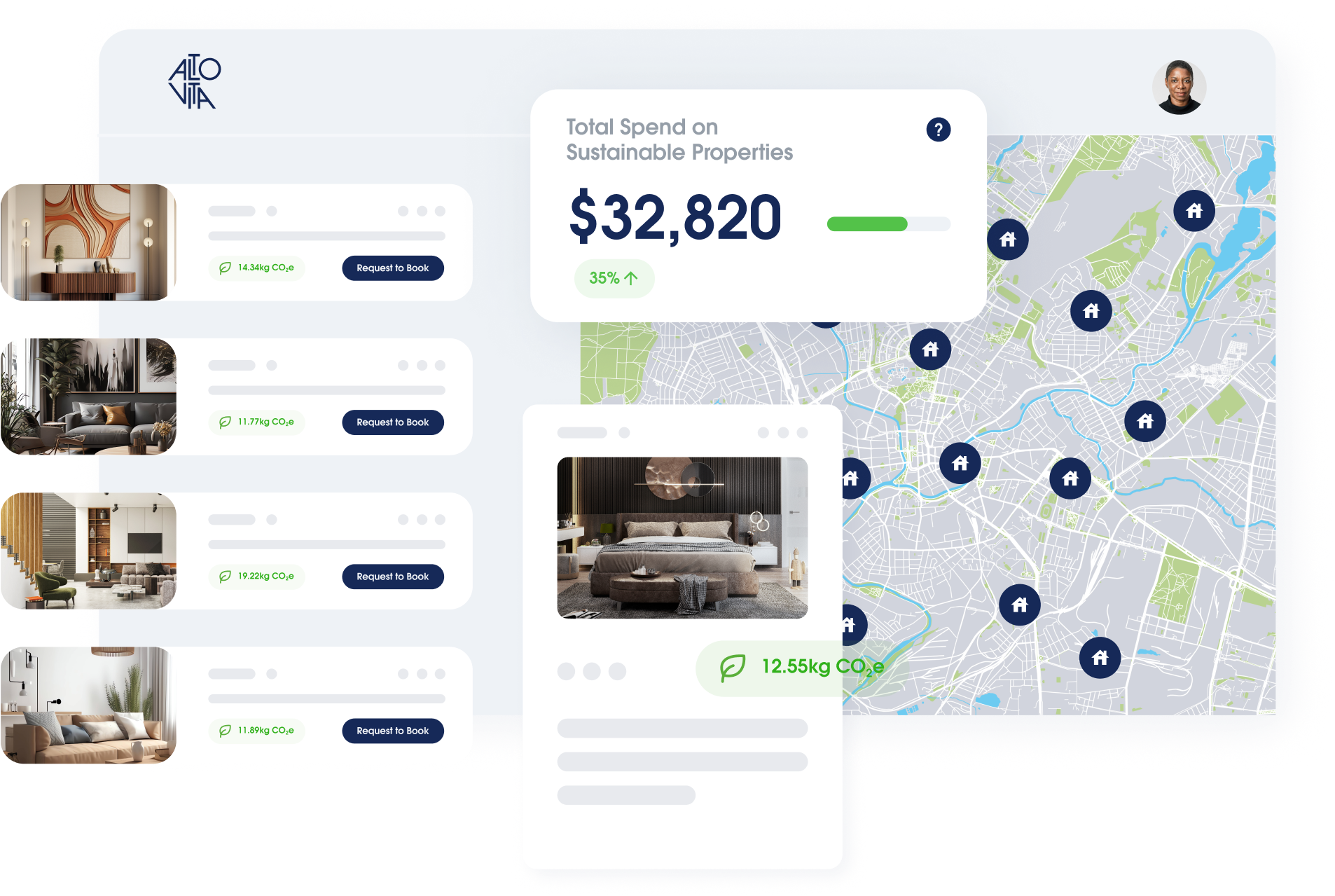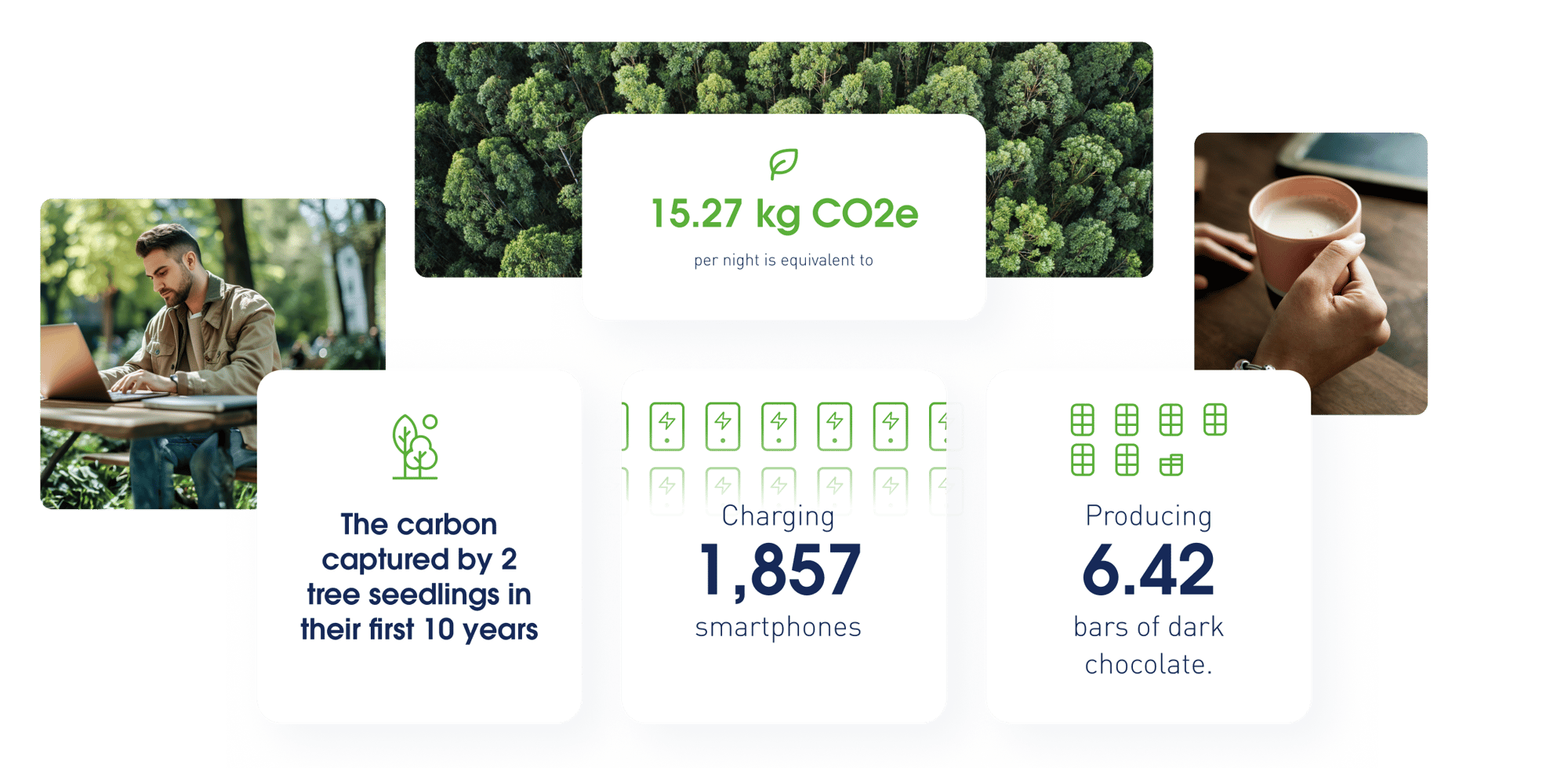Choosing The Right Accommodation for a More Sustainable Business Travel
Are you planning for a business trip? Here is a guide to help you understand how your accommodation choice has a direct impact on our environment.


Understanding what CO2e means
The CO2e (carbon dioxide equivalent) is a standard unit used to measure and compare the emissions of different greenhouse gasses based on their global warming potential.
For business travel accommodation, CO2e emissions encompass all the greenhouse gasses produced from various activities associated with providing and using accommodation services, including:
- Energy Use: The energy consumed in heating, cooling, lighting, and powering electronic devices within accommodations. This includes both electricity and fuel sources.
- Transportation: Emissions from transporting guests to and from the accommodation, including airport shuttles, taxis, and rental cars.
- Food and Beverage Services: Emissions from food production, preparation, and waste management in hotel restaurants and catering services.
- Waste Management: Emissions from the disposal and treatment of waste generated by guests and the accommodation itself.
- Water Usage: Energy used in treating and heating water for showers, laundry, and other uses.
Why CO2e Emissions Matter
CO2e matters significantly as it provides a unified measure to evaluate the impact of different greenhouse gasses on global warming.
This metric is crucial for several reasons:
Many corporations have ambitious sustainability goals to reduce their carbon footprint. When booking accommodation for business travel, it's important to consider the environmental impact and choose options that align with your company's sustainability commitments.
As governments and international bodies increasingly regulate greenhouse gas emissions, understanding CO2e emissions helps businesses stay compliant with current and future regulations.
CO2e provides a clear and relatable way for the public to understand the impact of various activities on the climate. This fosters greater environmental awareness and accountability among individuals and organizations.
Serviced apartments have a significantly lower carbon footprint compared to traditional hotels. For instance, during a 30-night stay, the CO2 footprint of a serviced apartment is 70% less than that of a hotel in the same area. This reduction is due to factors such as longer stays, more efficient energy use, and sustainable housekeeping practices.
Serviced apartments use 40% less water per night than the average hotel room. They also boast better energy efficiency through features like smart thermostats, energy-efficient lighting, and the use of renewable energy sources such as solar panels.
Serviced apartments often encourage longer stays, which reduces the need for frequent travel and the associated emissions from flights and car rentals. Additionally, co-living and shared transportation options available at serviced apartments help lower the carbon footprint of corporate travel.

Did you know that…?
To give you a tangible sense of what CO2e per night means, let's look at some comparisons:

Why Serviced Apartments are More Sustainable than Hotels


Make a Difference
By choosing serviced apartments over hotels, you can directly contribute to your company's sustainability goals. Your choice helps reduce carbon emissions, conserve water and energy, and support sustainable practices. Every decision you make can lead to a more sustainable future.